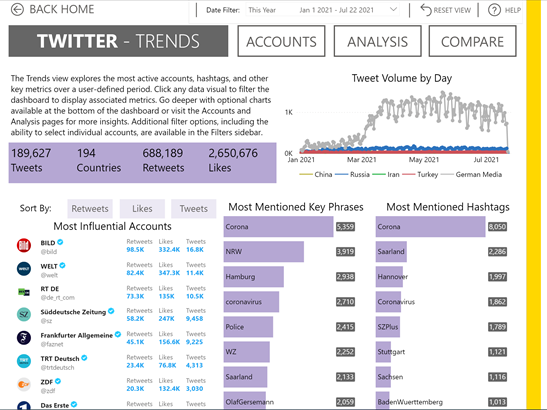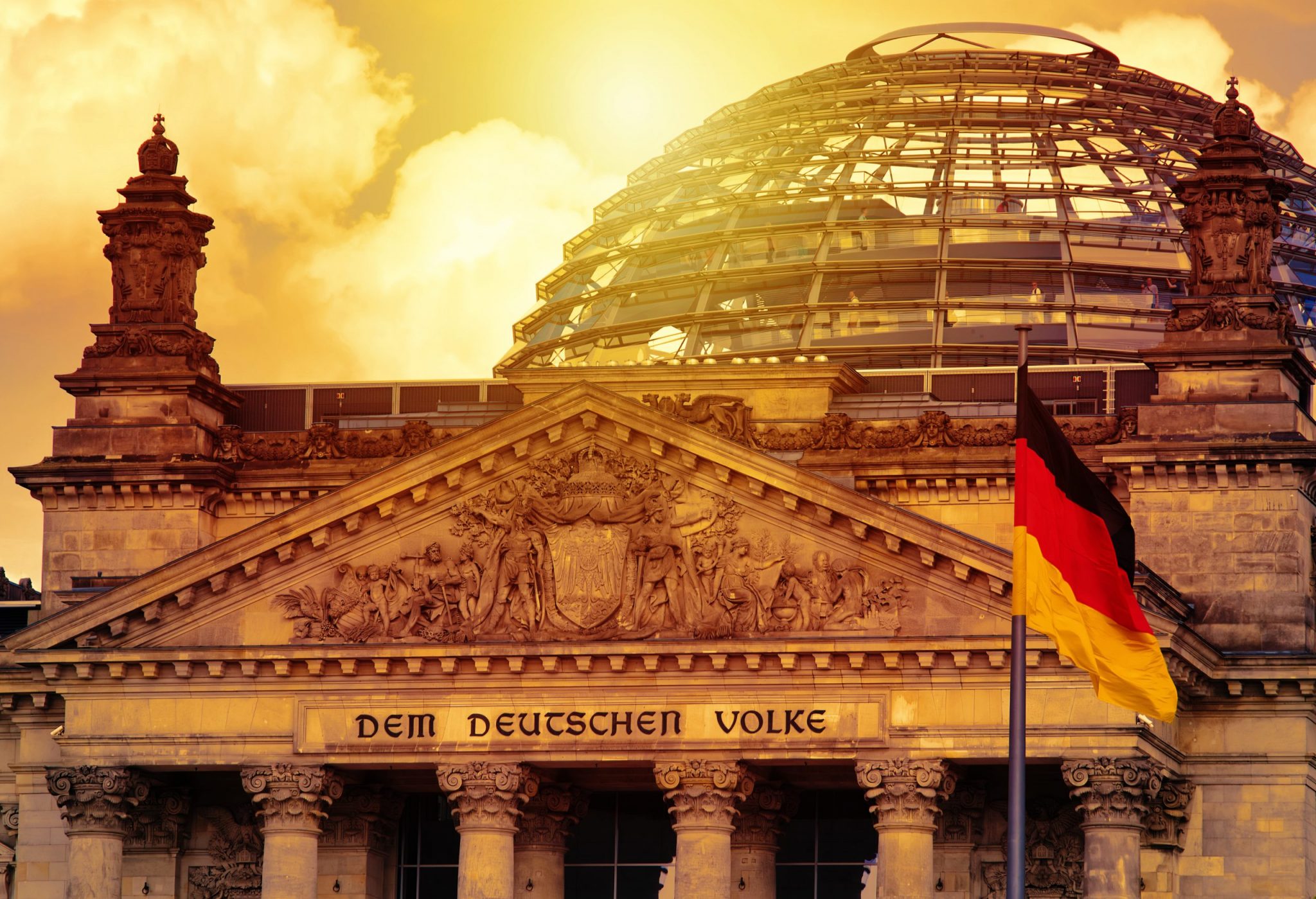Germany’s upcoming federal election in September is not only important for the German people but can be an alluring target for foreign and domestic actors seeking to influence the future trajectory of the country or seeking to undermine democratic processes. Germany’s crucial role on issues such as maintaining EU sanctions against Russia and shaping Europe’s trade relationship with China suggests that these authoritarian countries have a lot at stake in this election. The question is, will they or others take an active role in shaping discourse or seeking to otherwise influence election outcomes?
To help answer this question, the Alliance for Securing Democracy and the German Marshall Fund of the United States have launched the 2021 German Election Dashboard in collaboration with the Institute for Strategic Dialogue. This real-time, open-source tool tracks foreign and domestic narratives targeting German audiences. Users can track Russian, Chinese, Turkish, and Iranian official diplomatic accounts and state-funded media outlets, as well as other actors, to see how these sources aim to shape German and international discussions around election-relevant themes.
Here are the top five findings from the first months of data.
1. Russian state-backed media accounts are very influential and delve into domestic German politics, largely by promoting emotional narratives on controversial topics, but occasionally by going after candidates directly, with Annalena Baerbock receiving most attention.
Russia’s state-backed media accounts are very influential. In 2021, RT Deutsch has been the third most retweeted media account in Germany out of all traditional and foreign media, coming in after Bild and Welt. RT Deutsch publishes more tweets and gets more retweets than well-known outlets Süddeutsche Zeitung and the Frankfurter Allgemeine.
Russian state-backed media focus heavily on Covid-19 and vaccinations, spreading doubts about vaccine safety and accusing the German government of discrimination against vaccine skeptics.
RT Deutsch and SNA (Sputnik) delve into controversial domestic issues. During the Saxony-Anhalt elections, these accounts spread narratives questioning the election’s significance and validity, and they stoked East-West German divisions. During the UEFA championship, both RT Deutsch and SNA jumped into the rainbow flag discussion, portraying rainbow displays as inappropriate and sharing an AfD politician’s derogatory messages against soccer players wearing rainbow armbands.
Green Party candidate Annalena Baerbock receives disproportionate coverage by RT Deutsch as compared to the other candidates. Coverage focuses on allegations of plagiarism and sensationalized stories about her anticipated policies. This is notable given Baerbock and the Green Party’s tough stance on Russia and its interests, such as the Nord Stream 2 pipeline.

2. Russian state-backed media funnel Kremlin foreign policy opinions to German audiences.
When covering foreign policy, RT Deutsch and SNA (Sputnik) share Russian President Putin’s messaging on key issues. For example, they depict NATO as an aggressor, share Moscow foreign ministry statements about the conflict in Ukraine, engage in whataboutism in response to Chancellor Merkel’s concern over forcing down the Ryanair flight in Belarus, and depict the United States rather than Russia as an aggressor in relation to Nord Stream 2.
3. China focuses on issues core to its own foreign policy interests but does not jump into domestic policy in Germany. Chinese accounts seek to positively portray Xinjiang and discredit accusations of genocide.
Xinjiang is a top priority for Chinese accounts and is the second most tweeted-about topic this year, after the Chinese Communist Party’s (CCP) 100th anniversary. Other Chinese narratives focus on celebrating China’s achievements and praising China’s form of government. During the CCP’s anniversary, tweets claimed that China was a democracy “even more than in the West.”
4. Turkish state-backed media focuses on foreign and domestic topics in Germany related to Turkey’s interests, as well as on the portrayal of Islam in the West.
During the Israeli-Palestinian conflict in May, Turkish state-backed media accounts extensively covered the conflict and questioned whether Germany covered the conflict fairly. Turkish accounts often cover Islamophobia and violence against Muslims in Germany and the West.
5. Iran is the least significant actor. Its messaging is often focused on Iranian foreign policy priorities.
In addition to sharing statements by Iranian government leaders, Iran’s messaging also focuses on removing sanctions, progress on the JCPOA, and the lack of availability of vaccines in the developing world.
The views expressed in GMF publications and commentary are the views of the author alone.





